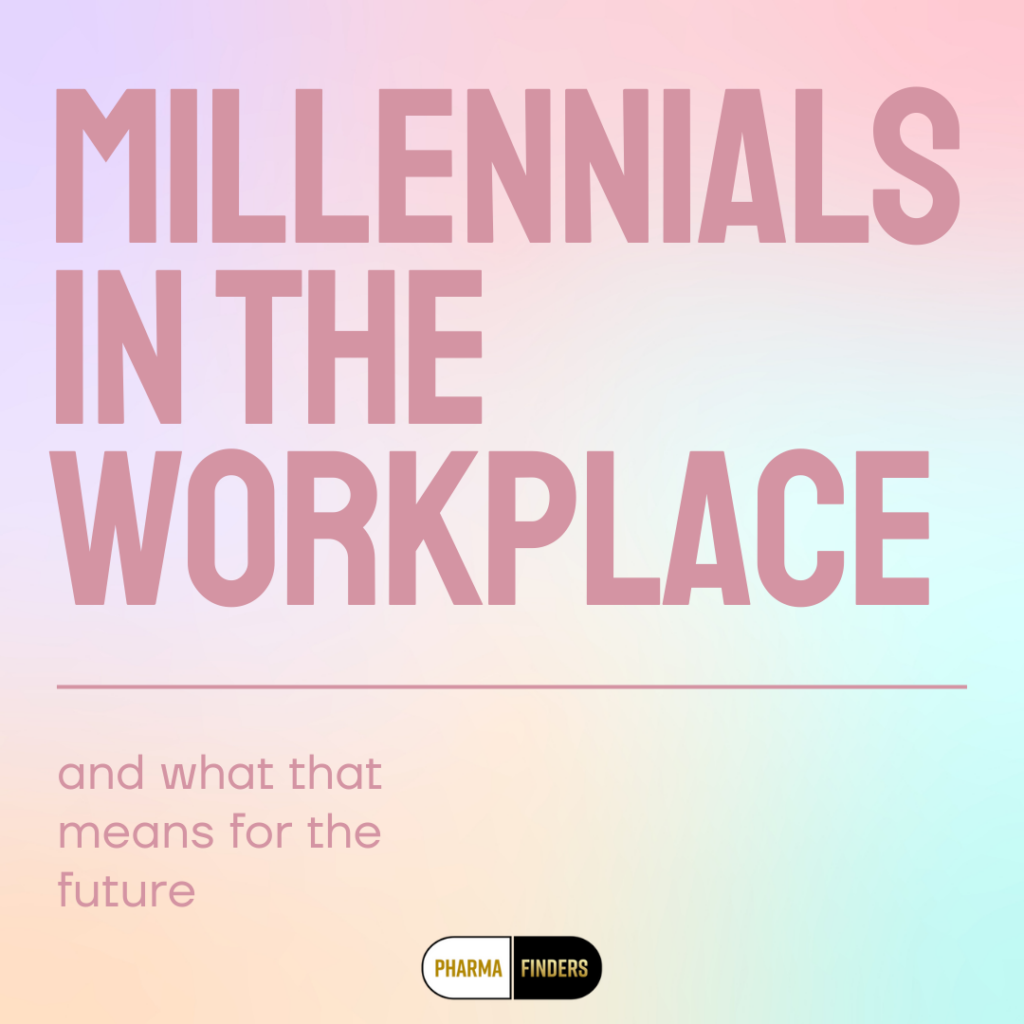And how that’s shaping medical affairs today
Earlier this year we got the opportunity to sit in on a session with Whitney Morris over at Integra Life Sciences. Much of her presentation was centered around millennials in the workplace and what that means for the future of medical affairs. In addition to her discussion, we wanted to do a deeper dive on this and elaborate on the stats surrounding this newer generation coming into the workforce.
Millennials make up 35% of the workforce. By 2025, millennials will make up 75% of the workplace. The millennial age range is 25-40. Every day, we see more and more graduates moving into the pharma/biotech industries. With that, they have expectations that a lot of the generations before them didn’t have, and/or the earlier generations didn’t have available to them when they entered the field.
With that, just 57% of millennials are satisfied with their pay, and only 29% of millennials are engaged at work. So what can we do to increase those numbers?
We dug into what the priorities are for candidates today, versus what we’ve seen in the past. In years prior, it really came down to these three factors (in no particular order): Salary, team culture, and excitement about the company/drug/pipeline.
Today, it’s a much more extensive list. If the millennials don’t feel fulfilled in most, if not all these areas, it’s likely they’ll leave the organization. That checks, given that only 28% of millennials plan on staying in a position more than five years. Here’s some of those factors they’re considering:
- Salary
- Health benefits
- Work from home opportunities
- More diversity and inclusivity within teams
- Culture
- More projects/going beyond a traditional MSL role
- Employees wanting to see their impact
- Wanting more exposure
- Promotion opportunities
- Career development/Coaching
So, what does this mean for the future of industry?
There are a few concepts that have been discussed, and we’ve seen a few companies already implement several of these ideas. Here’s some of the feedback we took note of:
- Moving to a 4-day work week
- Allowing more flexible schedules and more WFH days
- More work/life integration versus work/life balance (you can find more on that topic here)
- If in office, having fun ideas (like bring your dog to work day)
- Managers being more adaptable, and tailoring their style with an individual approach
- Companies promoting a more diverse group (websites, promo material, hiring + onboarding info and photos, inclusive company presentations, etc.)
- Expanding health benefits (gym memberships, healthy snacks/lunches available, more parental leave)
- Wanting more of a playbook on how to be promoted/steps to take versus waiting for the opportunity to present itself
As mentioned before, for the millennial generation there’s a lot to consider when making a move, and it’s a much more extensive list than we’ve seen before.
So now the question is, are these requirements specific just for millennials, or should this have always been the standard and we’ve just been behind the times?
If you’re a millennial in the workplace, what are the primary things you’re looking for in a new role. If you’re a baby boomer or gen x, throughout the years, have you noticed any of the changes mentioned above?
We’d love to hear your thoughts on this subject.
-Ashley



